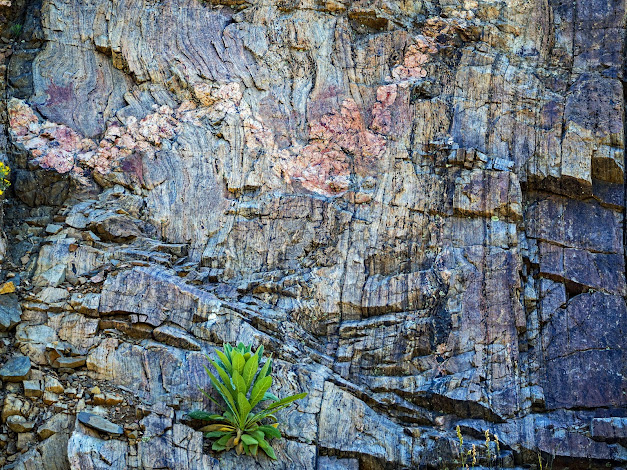Monday, June 10, 2024
from the owners manual
Friday, June 7, 2024
Wednesday, June 5, 2024
concentration and equanimity
everything taken away
abandon ourselves
Tuesday, June 4, 2024
a point of nothingness
aspects of the incomprehensible
The innumerable gods and goddesses of the Hindu religion are
the human aspects
of the indescribable
and incomprehensible Spirit, as conceived be the finite human mind.
They understand and
appreciate human love and emotion, help men to realize
their secular and spiritual ideals, and ultimately enable
men to attain liberation
from the miseries of
phenomenal life.
The Source of light, intelligence, wisdom, and strength is
the One alone
from whom comes the
fulfilment of desire. Yet, as long as a man is bound
by his human
limitations, he cannot but worship God through human forms.
He must use human
symbols. Therefore, Hinduism asks the devotees
to look on God as the
ideal father, the ideal mother, the ideal husband, the ideal son,
or the ideal friend.
But the name ultimately leads to the Nameless, the form to
the Formless,
the word to the Silence, the emotion to the serene
realization of Peace
in Existence-Knowledge-Bliss
Absolute.
The gods gradually merge in the one God, but until that
realization is achieved,
the devotee cannot
dissociate human factors from his worship. Therefore,
the Deity is bathed
and clothed and decked with ornaments. He is fed and put to sleep.
He is propitiated
with hymns, songs, and prayers. And there are appropriate rites
connected with all
these functions. For instance, to secure for himself external purity,
the priest bathes himself in holy water and puts on a holy
cloth. He purifies the mind
and the sense organs
by appropriate meditations. He fortifies the place of worship
against evil forces
by drawing around it circles of fire and water.
He awakens the different spiritual centers of the body and
invokes the Supreme Spirit in his heart.
Then he transfers the Supreme Spirit to the image before him
and worships the image,
regarding it no
longer as clay or stone, but as the embodiment of Spirit,
throbbing with Life and Consciousness. After the worship the
Supreme Spirit is recalled
from the image to Its
true sanctuary, the heart of the priest.
~ from The Gospel of Sri Ramakrishna
by Mahendranath Gupta
Saturday, May 25, 2024
to witness our own limits transgressed
.
wildly in love
They are always kissing, they can't
control themselves.
It is not possible
that any creature can have greater instincts
and perceptions than the
mature human
mind.
God
ripened me.
So I see it is true:
all objects in existence are
wildly in
love.
~ Meister Eckhart
.
kin to everything
One is constantly reminded of the infinite lavishness and fertility of Nature —
More and more, in a place like this,
a leaf says
A leaf says,
“Sweethearts—don’t pick me,
For I am busy doing
God’s work.
I am lowering my veins and roots
Like ropes
With buckets tied to them
Into the earth’s deep
Lake.
I am drawing water
That I offer like a rose to
The sky.
I am a singing cleaning woman
Dusting all the shelves in
The air
With my elegant green
Rags.
I have a heart.
I can know happiness like
You.
~ Hafiz



































